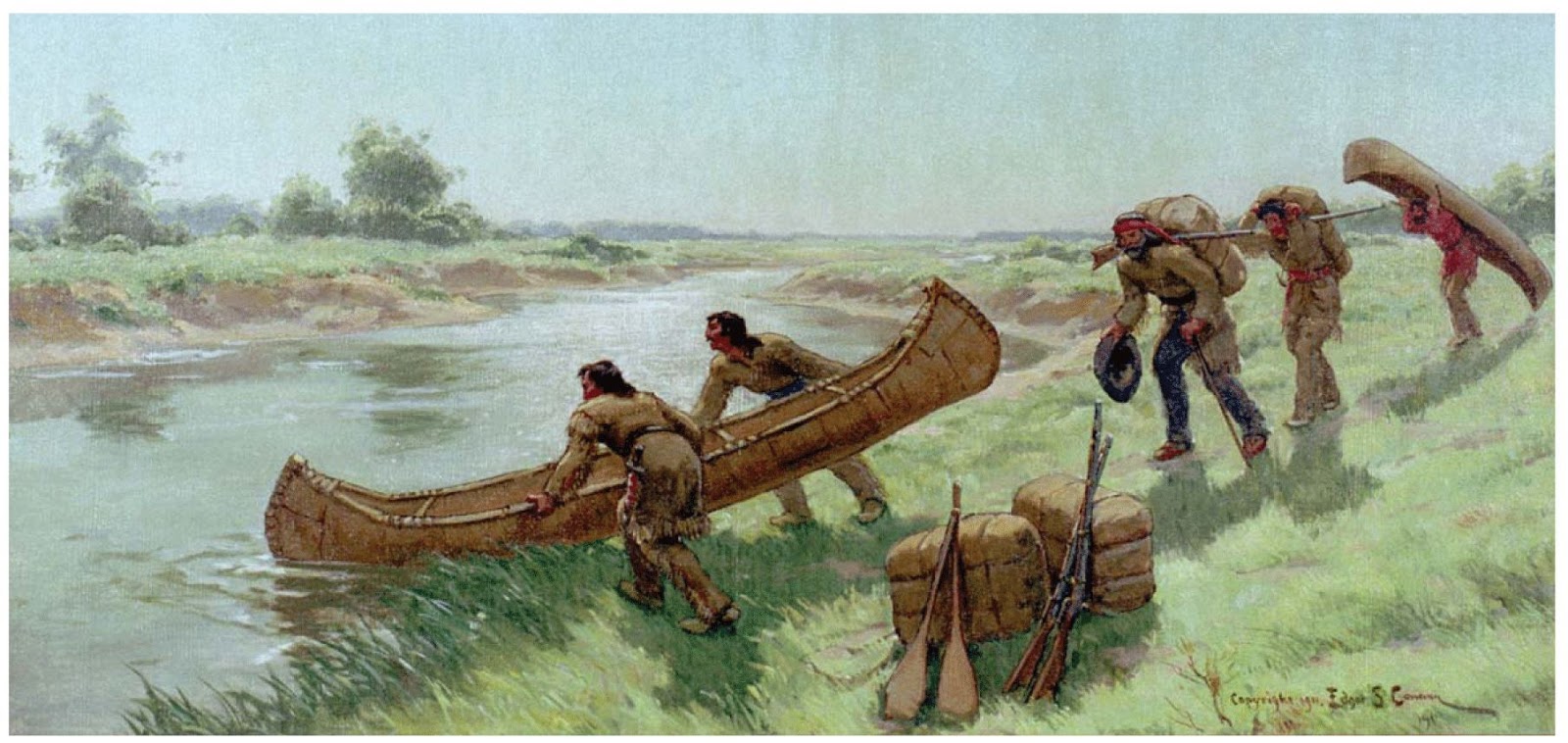|
The cultural and political divisions of our time look as nearly impassible as the snow-covered peaks of the Continental Divide, back before railroads and airplanes. Other great North American drainage divides offer more inviting models. The one I know best separates the watershed of the Lakes/St. Lawrence River from that of the Mississippi River. Waters on one side flow to the North Atlantic; on the other, to the Gulf of Mexico.
This divide looks far from dramatic. It is low, often marshy, and scarcely visible to the casual observer. Centuries ago, before canals, spring rains made some marshes wet enough to paddle across. Otherwise, travelers had to carry goods and canoes overland from one watershed to the other. French fur traders called such crossings portages, from French for “carry.” Major portages connected Green Bay with the Wisconsin River, Chicago with the Illinois River, and Cleveland with the Ohio River. To cross them was tiring but not prohibitive. The Gulf of St. Lawrence and the Gulf of Mexico are two thousand miles apart. That’s a plausible metaphor for today’s societal distance between right and left, conservative and progressive, red state and blue state. We’ll never all think alike, and it wouldn’t be healthy if we did. But the barrier shouldn’t have to consist of impenetrable mountains. What if we envisioned it as low and possible to traverse? Might we aspire to connect despite differences, and some days even to paddle across? Image: The Chicago Portage by Edgar Spier Cameron, 1862-1944.
6 Comments
Dennis Doren
7/4/2022 08:04:18 am
Nice thought overall, but there seems an unfortunate flaw in the metaphor. The people who traversed the marshes were motivated to get to the other side. And even when someone from the other side crosses the marsh “to trade” with us, the vast majority of us only want that person to buy our goods; not for us yo buy from that person.
Reply
7/4/2022 12:04:13 pm
Fair point, alas. I'm not sure, though, that there aren't individuals on both sides who would welcome some exchange, with ground rules. In the barter economy of the fur traders, no trade could happen unless it went both ways.
Reply
Dennis Doren
7/4/2022 01:33:27 pm
In fact, I have looked for such exchanges a small number of times, when given the chance even saying I don’t think either side has a monopoly on the truth or best answers. I have learned to shy away from participating in these “discussions” after being subjected to others’ diatribes; even after they tell me they are open to other perspectives. 7/4/2022 03:19:01 pm
I heard Sunday about an organization that sponsored such intentional discussions (perhaps in hiatus with the pandemic) - if the person who mentioned it remembers the name, I'll try to provide it here. And decades ago the National Conference of Christians and Jews (as it then was) brought together Chicago police and South Side residents in that way. Somehow their ground rules and structure (and motivation on both sides) helped avoid the diatribes. It's easier to hear personal stories than abstract reasoning. Crossing the marshes is rare and I believe there's a hunger for it.
Reply
CHARLDA L THOMPSON
7/4/2022 09:34:15 pm
Thanks for some of the history Sarah and a look at the other divides we face. Recently, you wrote about rants, and, especially now, I feel like I could rant indefinitely! However, there are not many places to do so where it would be safe and not a waste of breath!
Reply
7/5/2022 07:15:44 am
Ranting definitely has its place! A waste of breath if we're trying to convince others, but sometimes helpful with like-minded folks to remind us we're not alone. More and more, I believe we need BOTH safe places with kindred spirits AND respectful interaction with a variety of people, to connect with their humanity instead of reducing them to stereotypes.
Reply
Leave a Reply. |
AuthorI'm a historian who writes novels and literary nonfiction. My home base is Madison, Wisconsin. Archives
July 2024
|

 RSS Feed
RSS Feed